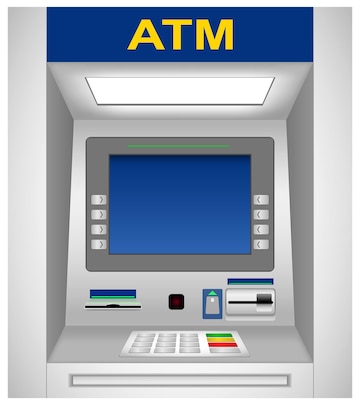The Banking Hall
ATM Usage Plummets as POS Agents Drive N223.27 Trillion in Transactions, Reshaping Nigeria’s Payment Landscape

A significant shift in Nigeria’s financial ecosystem has been unveiled, with new data revealing a sharp decline in Automated Teller Machine (ATM) usage while Point of Sale (POS) agents have collectively processed a staggering N223.27 trillion in transactions during 2024. This monumental figure underscores the growing dominance of agent banking in facilitating financial services across the nation and signals a profound transformation in how Nigerians access and transact with money.
According to reports, the value of ATM withdrawals in 2024 saw only a slight increase to N29.12 trillion from N28.21 trillion in the previous year, indicating a clear slowdown in cash withdrawal growth via traditional ATMs. In stark contrast, the value of POS transactions surged from N110.35 trillion in 2023 to an impressive N223.27 trillion in 2024. The volume of POS transactions also experienced a substantial leap, rising 32.7% year-on-year from 9.85 billion in 2023 to 13.08 billion in 2024.
This remarkable growth in POS transactions, coupled with the stagnation in ATM usage, highlights several key trends shaping Nigeria’s financial future:
Ubiquitous Accessibility: POS agents have become the go-to for cash access and other financial services, especially in areas where traditional banking infrastructure is scarce. With approximately 2.7 million deployed POS terminals in March 2024 compared to less than 21,500 ATMs, the convenience and proximity offered by POS operators are undeniable.
Response to Cash Scarcity and Policy: The 2023 cash scarcity crisis and subsequent Central Bank of Nigeria (CBN) policies, including limitations on ATM withdrawals and the cashless policy drive, inadvertently propelled the adoption and reliance on POS agents. While initially aimed at reducing cash in circulation, these measures made POS operators indispensable in bridging the gap left by banks.
Evolving Consumer Behavior: Nigerians are increasingly embracing digital payment methods. Despite occasional higher fees, users often prefer POS withdrawals due to factors like proximity, speed, customer service, and consistent cash availability, often finding agents more personable than traditional bank staff.
Fintech Dominance: The aggressive push in POS deployments by fintech companies like OPay, PalmPay, and Moniepoint has been a major catalyst in this shift, with these operators dominating a significant portion of the POS agent market.
While the rise of POS agents has undeniably enhanced financial inclusion and convenience, it has also brought challenges, including concerns over transaction fees and instances of fraud. The CBN has introduced measures to regulate the sector, including daily cash-out transaction limits for agents and customers, aiming to combat fraud and further advance the cashless policy.
The data unequivocally points to a future where digital payments, particularly through POS terminals and other electronic channels, will continue to lead Nigeria’s financial landscape. As the country moves towards a less cash-dominant economy, stakeholders will need to continue collaborating to ensure that financial services remain convenient, affordable, and secure for all Nigerians.
